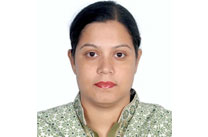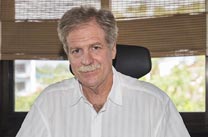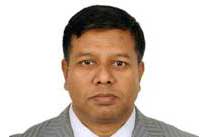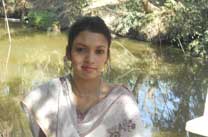
Livelihood Challenges in the Teesta River Basin: Sabina’s Life Now and Then
By: Zakia Naznin, Gender Specialist and Md Abu Syed PhD, Fellow Bangladesh Centre for Advanced Studies (BCAS - 09 Nov 2015
Sabina Begum, 65, lives on the Pinjorvanga embankment of the Teesta River, Balapara union of Kounia Upazila, in Rangpur district. She says she feels nostalgic about her childhood days, when her parents were largely dependent on fishing in the river Teesta…

Photo Story: Warm Nights in Faisalabad, Pakistan
By: Tanya Singh, Alterra - 03 Nov 2015
The recent heat wave events in Pakistan (June 2015) and India (May 2015) took a toll of thousands of lives. Heat waves, resulting from a host of factors such as extreme temperatures, relative humidity, and wind speed, can claim lives even in regions where one would expect people to be used to the heat. Most studies which establish a relation between health outcomes and extreme heat rely on meteorological data from standardised weather stations outside of city limits…

Message from David Molden, Director General-ICIMOD and Chair of the HI-AWARE Steering Committee
By: David James Molden, Director General – ICIMOD and Chairperson of the HI-AWARE Steering Committee - 23 Sep 2015
ICIMOD, together with its partner organisations BCAS, TERI, PARC and Alterra, is implementing the Himalayan Adaptation, Water and Resilience (HI-AWARE) Research on Glacier and Snowpack Dependent River Basins for Improving Livelihoods

Pumpkin farming in Uttar Khoribari: great potential if done right
By: Md. Abu Syed, BCAS - 15 Sep 2015
Uttar Khoribari is a remote village along the river Teesta. It lies in Dimla union, Nilphamari Upazilla, in Rangpur District of Bangladesh. The village makes for a scenic locale, with its green fields, mud roads and proximity to the Teesta and its several channels-although they are gradually drying.

Informed Policies Needed for Gender-Responsive Adaptation
By: Tanzina Dilshad, BCAS - 15 Sep 2015
GIS and Remote Sensing Analyst, BCASThe impacts of climate change are not gender-neutral. Therefore, it is urgent that policymakers understand the gendered vulnerabilities of climate change and integrate the understandings in policies and other initiatives related to climate-change adaptation.

Discord and Discontent: A Perspective on Flood-related Water Governance in Chitwan
By: Ankita Shrestha, ICIMOD-HI-AWARE - 11 Sep 2015
It is not a new finding in good governance research that there should be discord between and discontent among citizens and government authorities, provided that the end goal of such research is to attempt at closing these fissures…

Research design to integrate wellbeing into SES-thinking
By: Navarun Varma, The Energy and Resources Institute (TERI - 11 Sep 2015
In HI-AWARE’s Research Component 2 studies, we are interested in understanding the drivers of differential vulnerabilities to climate change risks. Since we will be venturing into the dynamic dimension of vulnerability, we propose to use the resilience approach, which will enable us to capture both social and ecological aspects of change…

How SaMi’s coordinators can help women who want to go abroad as migrant workers: Dr Amina Maharjan’s perspective
By: Tiku Gauchan, Consultant, HI-AWARE - 09 Sep 2015
Dr Amina Maharjan, Livelihoods Specialist working on migration issues for HI-AWARE and other initiatives at ICIMOD, led a workshop session during the Training of District Project Coordinators programme held at Hotel Greenwich, Kupondole Heights, Kathmandu, Nepal, on August 20, 2015.

Explaining the Nexus Approach to Food-Water-Energy Security as a Framework for Adaptation
By: Tiku Gauchan - 27 Aug 2015
By Tiku Gauchan Climate change in the Hindu Kush Himalaya (HKH) can have and has had adverse impacts on the food, water and energy needs of large segments of the population, (especially the most vulnerable ones) living in the region

Adaptation to Experienced Climatic Changes in the Teesta River Basin
By: Harriet-Larrington Spencer, ICIMOD - 20 Aug 2015
Climatic changes and stressors upon livelihoods are experienced differently by different communities of people, despite their locations within, for example, the same river basin. As a result, adaptation pathways within river basins are also likely to be heterogeneous…
